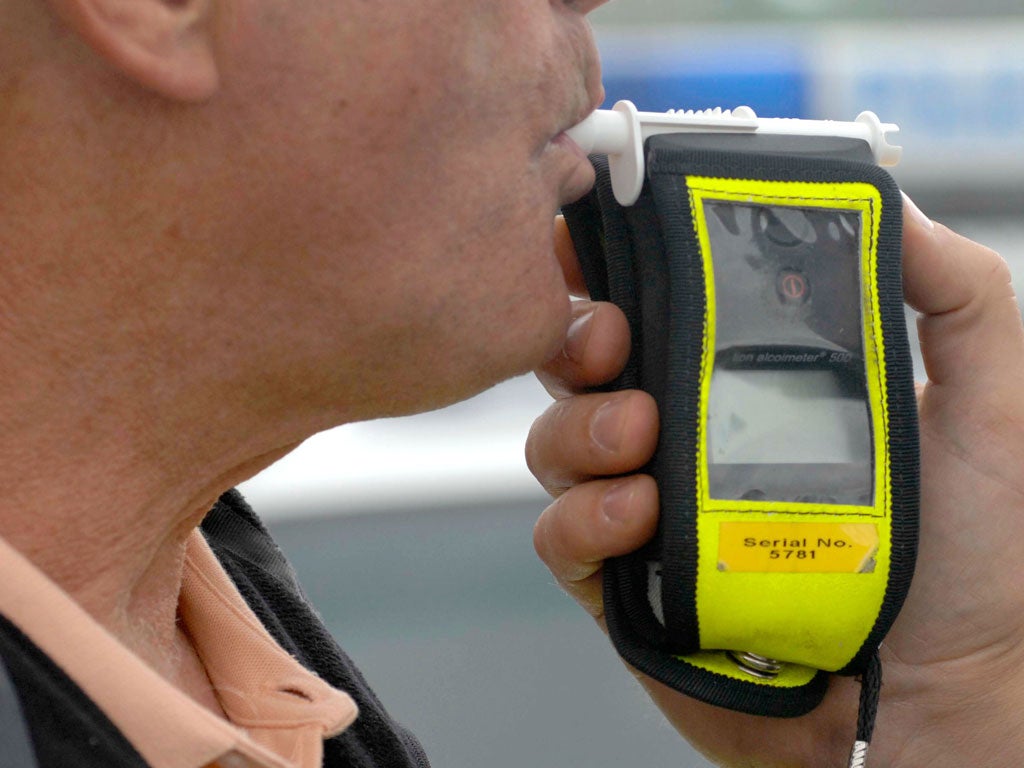After a successful trial in Norwich, could breathalysers be coming to your favourite student night out?
A pilot scheme to test students' drunkenness at club doors could be about to spread to other parts of the country

Your support helps us to tell the story
From reproductive rights to climate change to Big Tech, The Independent is on the ground when the story is developing. Whether it's investigating the financials of Elon Musk's pro-Trump PAC or producing our latest documentary, 'The A Word', which shines a light on the American women fighting for reproductive rights, we know how important it is to parse out the facts from the messaging.
At such a critical moment in US history, we need reporters on the ground. Your donation allows us to keep sending journalists to speak to both sides of the story.
The Independent is trusted by Americans across the entire political spectrum. And unlike many other quality news outlets, we choose not to lock Americans out of our reporting and analysis with paywalls. We believe quality journalism should be available to everyone, paid for by those who can afford it.
Your support makes all the difference.Breathalysers may be making a permanent appearance at students’ favourite clubs, as a trial scheme to stop drunken violence in Norwich is hailed as a success.
The "#DeepBreath" campaign saw police give breathalysers to 28 of the city’s clubs and bars, to be used throughout December, aiming to stop those deemed too drunk from continuing to party.
The trial is considered a success in Norwich, with several clubs planning to continue testing in January while they use up their remaining breath tubes.
These include late night venue Kartel on London Road. Owner Brad Baxter said: “I’m happy to use it because the advantage that it has, and for all the other bars too, is that when you tell someone they’re too drunk they get pissed off every time, and now we have a proving mechanism that shows them that, yes, you are super-wasted and that’s why we don’t want you in here.
“I think it’s awesome. It just squashes arguments and that’s a super important thing for any nightclub to have.”
Inspector Ed Brown of the Norfolk Constabulary’s licensing team said: “Going from initial feedback, the venues did want to carry on. I think out of the 28 venues that took part, about 20 have still got them and are still using them; that’s very positive.”
An evaluation of logs kept by all venues involved is under way, with a report to be published at the end of January. However, initial reactions by the police seem to indicate that violence was lower this December than in previous years.
The campaign, with its slogan "Are you trollied? #DeepBreath", has sparked the interest of other police forces in the UK, and will be discussed at the national conference in March. Forces in Northern Ireland, Cheshire and Northamptonshire have shown a particular interest, with police in Suffolk also implementing breathalyser tests on some student nights.
Students certainly felt this result of heavy pre-drinking, as they were refused entrance to their favourite haunts. With the new term starting on 13 January, UEA students may find more of their nights cut short.
Despite party goers having to forgo their nights out, Jack Wrigley, manager of Lola Lo nightclub, said: “We’ve had a positive response from both the customer and the door team issuing the tests. It is a great tool to have on the door and is a great eye opener for both students and to our over-21 crowd at the weekend.
“We would consider using them in the future if the option became available.”
As to whether breathalysers will be permanently used in Norwich, Inspector Brown said: “The next stage is ascertaining if we carry on using them how are they going to be used. Are they going to be used at specific times of the year, is it going to run all the time or does it lose its impact by being run all the time.”
The evaluation will also determine what level of alcohol consumption is considered “too drunk”, whether it be “drink driving level", "double drink drive" or "triple drink drive”. With their nights out at risk, students may just have to start to swap their doubles for singles at pre-drinks.
Join our commenting forum
Join thought-provoking conversations, follow other Independent readers and see their replies
Comments